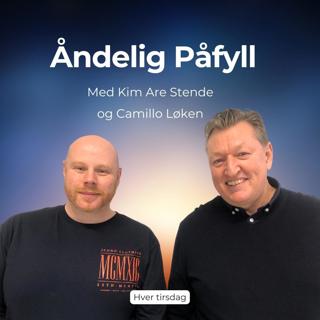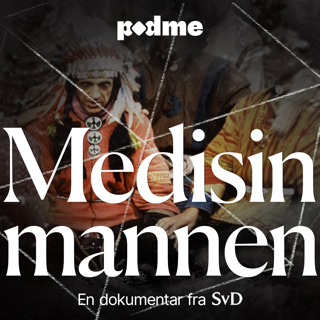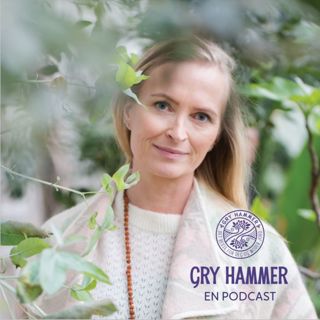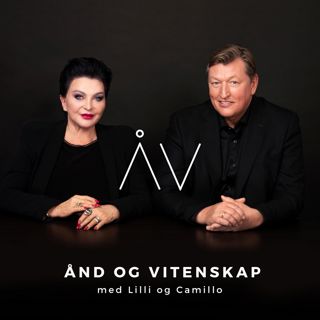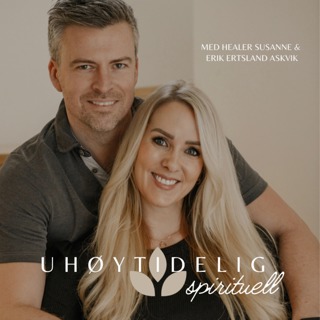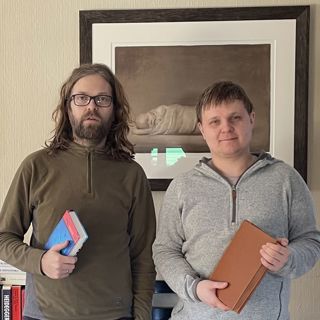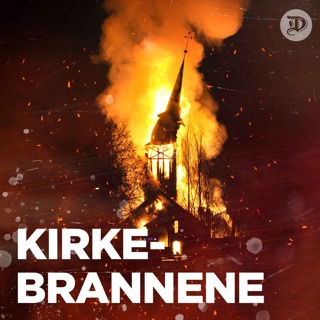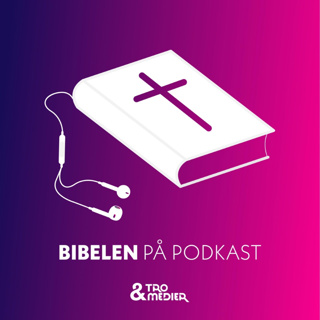![Ari Lamm: Teaching Non-Jews To Love the Bible [Outreach 3/5]](https://cdn.podme.com/podcast-images/831D9F30BFC50A05C5BCB0E2C99EF830_small.jpg)
Ari Lamm: Teaching Non-Jews To Love the Bible [Outreach 3/5]
In this episode of the 18Forty Podcast, we talk to Rabbi Dr. Ari Lamm, co-founder and president of SoulShop Studios, about doing Jewish “outreach” to non-Jews. Jewish texts are usually considered to be kept away from the outside world. But according to Rabbi Lamm, this is largely a misconception, as Jewish texts—from the Bible and the Talmud to the Midrash and beyond—have shaped the course of the human story. In this episode we discuss:Is “interfaith dialogue” generally ineffective?How did Christianity’s Protestant Reformation impact the Jewish People? In what way did chazal “ignite” the American Revolution?Tune in to hear a conversation about what the Jewish tradition has contributed—and still has to offer—to the broader culture. Interview begins at 7:58.Rabbi Dr. Ari Lamm is Co-Founder and President of SoulShop Studios, a new media venture for faith-driven Gen Z audiences, and Chief Executive of the Bnai Zion Foundation. Rabbi Dr. Lamm is a leading Jewish public intellectual using digital media to bring great Jewish ideas to the wider English-speaking public. He is the host of the top-ranked weekly podcast on the Bible and society, Good Faith Effort. And his popular Twitter threads on “Why Read the Bible in Hebrew?” have garnered over 4 million views to date, and been covered by major international news outlets. He joins us to talk about teaching the bible to non-Jews. References:Isaiah 56:7Isaiah 2Genesis 12Devarim Rabbah 5:8A Defence of the People of England by John MiltonCommon Sense by Thomas Paine“Why Read The Bible In Hebrew?”“Rabbi Lord Jonathan Sacks Interviewed by Rabbi Ari Lamm”The Hebrew Republic by Eric NelsonAri Lamm on “Four score and seven years ago”Psalm 90 King James VersionBecome a supporter of this podcast: https://www.spreaker.com/podcast/18forty-podcast--4344730/support.
18 Feb 1h 6min
![Frieda Vizel: How the World Misunderstands Hasidic Jewry [Outreach 2/5]](https://cdn.podme.com/podcast-images/204AA3A426C0DB2939ADE0F1360A88D4_small.jpg)
Frieda Vizel: How the World Misunderstands Hasidic Jewry [Outreach 2/5]
In this episode of the 18Forty Podcast, we talk to Frieda Vizel—a formerly Satmar Jew who makes educational content about Hasidic life—about her work presenting Hasidic Williamsburg to the outside world, and vice-versa. In this episode we discuss:Why would someone who leaves the Hasidic community become something of an emissary for her previous world?How does Frieda serve as a “cultural translator” between Williamsburg Hasidim and the “guests” on her tours? How does one convey the “essence” of a culture to visitors who might never experience its depths? Tune in to hear a conversation about how a community’s particularities might be precisely what makes it universally relatable. Interview begins at 5:42.Frieda Vizel is a blogger and tour guide of Hasidic Williamsburg. Frieda is well-known for her informational videos with an insider’s look at the customs and traditions of Hasidic life, and for her ability to effectively navigate cross-cultural contact and communication between Hasidic and non-Hasidic Jews.References:Take One with Liel LeibovitzFrieda Vizel on YouTubeA Life Apart: Hasidism in America (1997)Unorthodox (2020)Hasidism: A New History by David BialeA Fortress in Brooklyn by Michael Casper and Nathaniel DeutschHasidic People by Jerome R. MintzGödel, Escher, Bach: An Eternal Golden Braid by Douglas R. HofstadterLe Ton Beau De Marot: In Praise Of The Music Of Language by Douglas R. HofstadterGenesis 12:3Likutei Moharan 19Joey Rosenfeld on TranslationBecome a supporter of this podcast: https://www.spreaker.com/podcast/18forty-podcast--4344730/support.
11 Feb 1h 16min
![Yitzchok Adlerstein: Zionism, the American Yeshiva World, and Reaching Beyond Our Community [Outreach 1/5]](https://cdn.podme.com/podcast-images/19B121DA53C51C790BE1B9452C7C4281_small.jpg)
Yitzchok Adlerstein: Zionism, the American Yeshiva World, and Reaching Beyond Our Community [Outreach 1/5]
This episode is sponsored by Nishmat, whose Summer Beit Midrash offers transformative Torah learning in the heart of Jerusalem for women of all backgrounds. Find more information here.Take our annual survey.In this episode of the 18Forty Podcast, we launch our new topic, Outreach, by talking to Rabbi Yitzchok Adlerstein, a senior staff member at the Simon Wiesenthal Center, about changing people’s minds, the value of individuality, and the “no true Scotsman” fallacy. With the tectonic shifts happening to our religious communities, political affiliations, and technological tools, conversations across social boundaries are becoming increasingly crucial. In this episode we discuss:How do we reach out to people “outside our communities,” in the many senses of that phrase? How do the needs of the American Yeshiva World differ from the needs of the Israeli Haredi World? How should we address the worldwide realignment that cultures of all kinds are experiencing?Tune in to hear a conversation about the importance of being “translators” across communities as we exchange ideas with one another. Interview begins at 21:34.Rabbi Yitzchok Adlerstein is a senior staff member at the Simon Wiesenthal Center, a Jewish advocacy group and international NGO. He also holds the Sydney M. Irmas Adjunct Chair in Jewish Law and Ethics at Loyola Law School in Los Angeles. Rabbi Adlerstein is the co-founder of Cross-Currents, an online journal of Orthodox Jewish thought, and regularly contributes to that site. He is on the editorial board of Klal Perspectives, an online journal of issues facing the Orthodox community. References:Iyun Podcast with Rabbi Ari Koretzky18Forty Podcast: “Ari Koretzky: In Conversation With Dovid Bashevkin”Being Wrong: Adventures in the Margin of Error by Kathryn Schulz“We Need To Start Befriending Neo Nazis” by Bethany MandelBen Torah For Life by Rabbi Aaron LopianskySong of Myself by Walt WhitmanBecome a supporter of this podcast: https://www.spreaker.com/podcast/18forty-podcast--4344730/support.
4 Feb 1h 22min
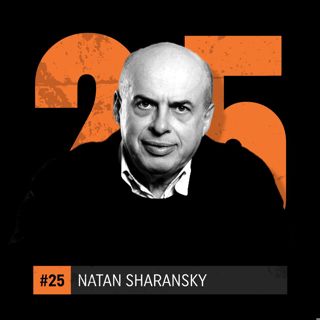
Natan Sharansky: 'If you don't have faith or Zionism, your grandchildren will not be Jewish' (18 Questions, 40 Israeli Thinkers)
Take our annual survery: https://www.surveymonkey.com/r/WZKXNWRWe don't have a new episode this week, but we want to share with you an episode of our podcast 18 Questions, 40 Israeli Thinkers, recorded on Jan. 13. Subscribe on Spotify or Apple Podcasts to catch the latest episode every Monday. Antisemitism and assimilation are threatening the Jewish People, says Natan Sharansky, but to both Israel offers a solution.Born in the Soviet Union and imprisoned by the authorities when trying to immigrate to Israel, Sharansky experienced brutal interrogations, forced feedings, and torture — sparking international campaigns to fight for his freedom in 1986. Today, Natan is Chairman for the Institute for the Study of Global Antisemitism and Policy and has an extensive record as a human rights activist, Israeli politician, and advocate for the Jewish People. He is the recipient of the Congressional Medal of Honor in 1986 and the Presidential Medal of Freedom in 2006. Now, he joins us to answer 18 questions on Israel, including anti-Zionism, hostage negotiations, and the threats of antisemitism and assimilation. This interview was held on Jan. 13.Here are our 18 questions:As an Israeli, and as a Jew, how are you feeling at this moment in Israeli history?What has been Israel’s greatest success and greatest mistake in its war against Hamas?How do you think Hamas views the outcome and aftermath of October 7—was it a success, in their eyes? What do you look for in deciding which Knesset party to vote for?Which is more important for Israel: Judaism or democracy?Should Israel treat its Jewish and non-Jewish citizens the same?What role should the Israeli government have in religious matters?Now that Israel already exists, what is the purpose of Zionism?Is opposing Zionism inherently antisemitic?Is the IDF the world’s most moral army?If you were making the case for Israel, where would you begin?Can questioning the actions of Israel’s government and army — even in the context of this war — be a valid form of love and patriotism?What do you think is the most legitimate criticism leveled against Israel today?Do you think peace between Israelis and Palestinians will happen within your lifetime?What should happen with Gaza and the Palestinian-Israeli conflict after the war?Is Israel properly handling the Iranian threat?Where do you identify on Israel’s political and religious spectrum, and do you have friends on the “other side”?Do you have more hope or fear for Israel and the Jewish People?Become a supporter of this podcast: https://www.spreaker.com/podcast/18forty-podcast--4344730/support.
29 Jan 1h 8min
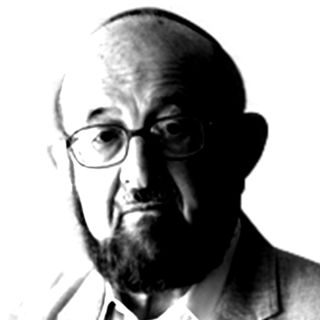
Haym Soloveitchik: The Rupture and Reconstruction of Halacha (Halacha Series Re-Release)
We don't have a new episode this week, but we invite you to revisit our initial conversation with Professor Haym Soloveitchik, originally aired on Feb. 8, 2022.In this episode of 18Forty Podcast, we had the privilege of speaking with Professor Haym Soloveitchik, University Professor of Jewish Studies at Yeshiva University.Professor Soloveitchik is a world-renowned scholar whose research has focused on the development of halacha—including martyrdom, pawn-broking and usery, as well as the laws of gentile wine. Much of his popular renown can be attributed to the publication of his article "Rupture and Reconstruction: The Transformation of Contemporary Orthodoxy" in Tradition (Summer 1994 28:4). The essay explores how halacha developed following the rupture of the Holocaust and moved from a mimetic tradition into a text based tradition. Following the article's publication, there have been several critical exchanges, collections of reflections, and conversations—a testimony to its enduring impact. The article and many of the critical exchanges have been collected into a new volume that has recently been published by the Littman Library of Jewish Civilization. It was a unique privilege to have Professor Solovetichik as a guest on 18Forty. In this episode, we discuss:- How has the shift from a mimetic tradition to a text based tradition affected Jewish life?- How does the approach of Professor Soloveitchik differ from the notion found within the Conservative movement of Catholic Israel?- Where can the sense of yirat shamayim—awe of heaven—found instinctively in previous generations, be discovered today?Tune in to hear a conversation about the implications of the development of halacha from a world renowned scholar and how these changes can affect our lives.Interview starts at 30:40.For more, visit https://18forty.org/halachaReferences:Rupture and Reconstruction: The Transformation of Contemporary Orthodoxy, Haym Soloveitchik (Tradition, Summer 1994, 28:4)On Haym Soloveitchik's "Rupture and Reconstruction: The Transformation of Contemporary Orthodox Society": A Response, Isaac Chavel (The Torah U-Maddah Journal 1997 vol. 7)Clarifications and Reply, Haym Soloveitchik (The Torah U-Maddah Journal 1997 vol. 7)Responding to Rupture and Reconstruction, Hillel Goldberg (Tradition 1997 31:2)Rupture and Reconstruction Reconsidered, Tradition Symposium (free e-book)On the Reception of Rupture and Reconstruction, Zev EleffThoughts on Rupture and Reconstruction Twenty Five Years Later, David BrofskyRabbi Dr. Haym Soloveitchik graduated from the Maimonides School which his father founded in Brookline, Massachusetts and then received his B.A. degree from Harvard College in 1958 with a major in history. After two years of postgraduate study at Harvard, he moved to Israel and began his studies toward an M.A. and PhD at the Hebrew University in Jerusalem, under the historian Professor Jacob Katz. He wrote his Master's thesis on the halacha of gentile wine in medieval Germany. His doctorate, which he received in 1972, concentrated on laws of pawnbroking and usury. He is considered a pioneer and leader in the study of the history of Jewish law.Become a supporter of this podcast: https://www.spreaker.com/podcast/18forty-podcast--4344730/support.
21 Jan 1h 20min

Listener Feedback with David Bashevkin
In this episode of the 18Forty Podcast, we hear questions, criticisms, complaints, thoughts, and feedback from our listener community. We respond to your comments about the direction of the podcast, the diversity of Jewish experience, and the increased centrality of Israel of our lives. In this episode we discuss:How has the 18Forty mission evolved in light of changes in the world and in Jewish life?Is there an opposite phenomenon to “gvir culture”?How should we discuss important issues that are contentious and divisive, such as the Haredi draft and the identity of the messiah?Tune in to hear a conversation about how 18Forty might become “a beis medrash for the Jewish People.”Voicemails begin at 19:23References:“Switch To Orthodoxy: Continuity Rather Than Triumph” by Sergey Kadinsky“First-ever Solomon Schechter day school in North America goes Orthodox” by Jackie HajdenbergDonate to 18FortySubscribe on YouTube18Forty Podcast: “Pawel Maciejko: Sabbateanism and the Roots of Secular Judaism”18Forty Podcast: “Joshua Leifer and Shaindy Ort: How Progressive Activists Rediscovered Traditional Jewish Life”Sliding to the Right: The Contest for the Future of American Jewish Orthodoxy by Samuel C. HeilmanBeyond Sectarianism: The Realignment of American Orthodox Judaism by Adam S. FerzigerAuthentically Orthodox: A Tradition-Bound Faith in American Life by Zev EleffModern Orthodox Judaism: A Documentary History by Zev Eleff18Forty Podcast: “Eli Rubin: Is the Rebbe the Messiah?”Basi Legani, 5711 by the Lubavitcher Rebbe18 Questions, 40 Israeli Thinkers“My Chevruta” by Itzhak David GoldbergBecome a supporter of this podcast: https://www.spreaker.com/podcast/18forty-podcast--4344730/support.
14 Jan 1h 24min
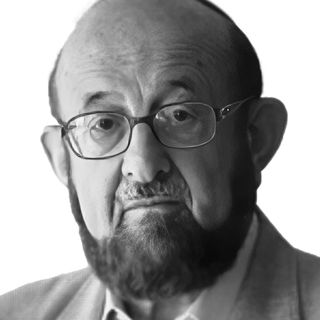
Haym Soloveitchik: How Modernity Changed Our Relationship to God
In this episode of the 18Forty Podcast, we speak with Rabbi Dr. Haym Soloveitchik—a pioneer and leader in the study of the history of Jewish law—about how halacha mediates our relationship to God in 2025.We’ve already spoken with Dr. Soloveitchik in our Halacha series, but a closer reading of his essential work, "Rupture and Reconstruction," demands that we explore it more deeply. In this episode we discuss:Why do Jews feel bound by the Talmud in a multicultural world? What does it mean to live in a society that increasingly learns from books and online rather than from mimetic tradition?Is a sense of security as a People a breeding ground for unnecessary social differences?Tune in to hear a conversation about how we might ensure a more vibrant environment for Jewish life to thrive in a changing world. Interview begins at 5:03.Rabbi Dr. Haym Soloveitchik graduated from the Maimonides School which his father founded in Brookline, Massachusetts, and then received his B.A. degree from Harvard College in 1958 with a major in history. After two years of postgraduate study at Harvard, he moved to Israel and began his studies toward an M.A. and PhD at the Hebrew University in Jerusalem, under the historian Professor Jacob Katz. He wrote his Master’s thesis on the halacha of gentile wine in medieval Germany. His doctorate, which he received in 1972, concentrated on laws of pawnbroking and usury. He is considered a pioneer and leader in the study of the history of Jewish law.References:Rupture and Reconstruction: The Transformation of Modern Orthodoxy by Haym SoloveitchikCollected Essays: Volumes I, II, and III by Haym SoloveitchikJews and the Wine Trade in Medieval Europe: Principles and Pressures by Haym SoloveitchikRabbi Joseph B. Soloveitchik’s Obituary in The Jewish ObserverIgros Hagrid Halevi by Rabbi Joseph B. SoloveitchikRationalism in Politics and other essays by Michael OakeshottThe Uprooted: The Epic Story of the Great Migrations That Made the American People by Oscar HandlinThe Polish Peasant in Europe and America by William Thomas and Florian Znaniecki“On the Third Yeshivah of Bavel” by by Haym SoloveitchikBecome a supporter of this podcast: https://www.spreaker.com/podcast/18forty-podcast--4344730/support.
7 Jan 1h 46min
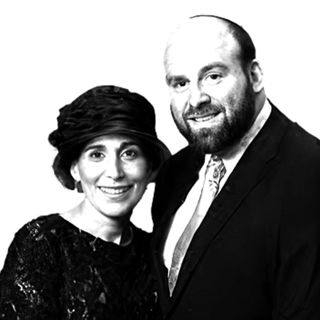
Reuven and Shani Taragin: What’s Next: The Future of Religious Zionism (Re-Release)
We don't have a new episode this week, but we invite you to revisit our conversation with Reuven and Shani Taragin on the future of Religious Zionism, originally aired Jan. 16, 2024.In this episode of the 18Forty Podcast, we talk to Rav Reuven and Rabbanit Shani Taragin, educational directors of World Mizrachi, about what comes next for Israel’s Dati Leumi (Religious Zionist) community. Additionally, we speak with Gideon Davis, a Religious Zionist soldier serving in Gaza.Mistakenly, we tend to think of the Dati Leumi community as Israel’s analog to Modern Orthodoxy. That makes us miss, however, that Religious Zionism is a rich worldview unto itself, and is something we all can learn from. In this episode we discuss:How does the Dati Leumi community differ from the American Modern Orthodox community?What can American Jews better understand about the sacrifices and contributions made by Religious Zionists?What does it mean to be a member of the Dati Leumi community in 2024?Tune in to hear a conversation about how a religious mindset can expand beyond personal piety to include a deep commitment to the Jewish People and the world.Interview with Gideon Davis begins at 6:09.Interview with Reuven and Shani Taragin begins at 36:42.Rav Reuven Taragin is a former Wexner Fellow and Musmach of the Israeli Chief Rabbinate. Rav Taragin is the Dean of Overseas Students at Yeshivat Hakotel where he is responsible for the program’s quality and message and the welfare of each of its talmidim. Rav Taragin is also the Rosh Beit Midrash at Camp Moshava (I.O.), and Rav of Kehillat Eretz Chemdah in Katamon.Rabbanit Shani Taragin is a noted author and teacher at Midreshet Lindenbaum, Midreshet Torah V’Avodah, MaTaN, Migdal Oz, Sha’alvim for Women, Lander College, and the Women’s’ Beit Midrash in Efrat and Ramat Shilo.The Taragins are the Educational Directors of World Mizrachi and the RZA (Religious Zionists of America), and they also serve as Roshei Beit Medrash for the Beit Medrash Program in Camp Moshava IO during the summer. They have six children and live in Alon Shvut, Gush Etzion.References:The MatrixAdjusting Sights by Haim SabatoTanakhThe Rav Speaks by Joseph B. Soleveitchik“How Will Redemption Begin?” by David BashevkinMeshekh Chokhmah by Meir Simha HaKohen DvinskBecome a supporter of this podcast: https://www.spreaker.com/podcast/18forty-podcast--4344730/support.
31 Des 20242h 1min








